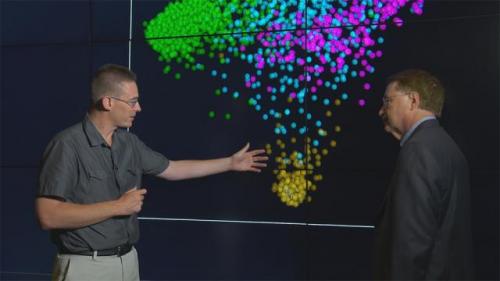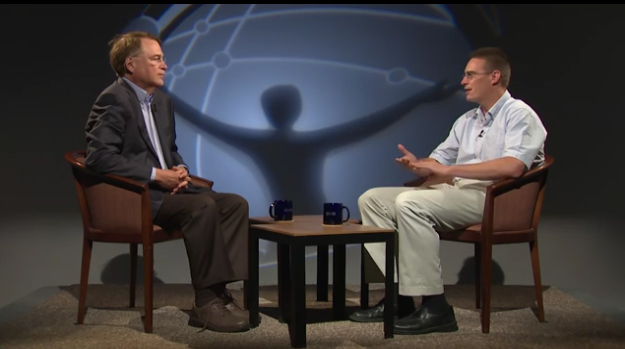
The White House Office of Science and Technology Policy (OSTP), in collaboration with public- and private-sector stakeholders, rolled out a National Microbiome Initiative (NMI) on May 13. Its goal: to foster the integrated study of microbiomes — the communities of microorganisms that live on and in people, plants, oceans and the atmosphere — and to develop tools to protect and restore healthy microbiome function.
On hand for the announcement was Rob Knight, a professor of Pediatrics and Computer Science and Engineering, who has been closely involved in the effort to create a national microbiome strategy since before he arrived at UC San Diego in early 2015. In announcing the NMI, the White House also noted that UC San Diego will invest $12 million in its newly-created Center for Microbiome Innovation (CMI) to “enable technology developers to connect with end users” of microbiome-related technology. CMI is directed by Knight and involves CSE faculty including Pavel Pevzner, Vineet Bafna, Nuno Bandeira, and Larry Smarr among its 150 faculty researchers.
“Microbes pervade all kinds of processes — from our bodies to our planet to industrial fermentation and drug synthesis,” said Knight (pictured at left with Smarr), who also directs the UC San Diego-based American Gut crowdsourcing project, which will expand its partnerships to improve public and academic understanding of the microbiome, as noted in the May 13 announcement. “Working closely with other researchers in the White House’s National Microbiome Initiative will help us unravel the fundamental science so we can understand how microbes do all these things, and help us improve the speed and accuracy in which we can ‘read out’ microbes.”
Smarr, who also directs the California Institute for Telecommunications and Information Technology (Calit2), recalls that the genesis of the institute’s research on microbiomes dates to January 2006 and a $24.5 million effort funded by the Gordon and Betty Moore Foundation. Called the Community Cyberinfrastructure for Advanced Marine Microbial Ecology Research and Analysis (CAMERA), the effort was led by Smarr and over seven years it built a computational resource at UC San Diego to help scientists understand how microbes function in their natural ecosystems, a field called metagenomics.
 (Smarr and Knight, pictured at left, appeared recently in a conversation on "Decoding the Microbiome", part of CSE's Computing Primetime series on UCSD-TV. Click here to watch the program online.)
(Smarr and Knight, pictured at left, appeared recently in a conversation on "Decoding the Microbiome", part of CSE's Computing Primetime series on UCSD-TV. Click here to watch the program online.)
Even before the seven-year CAMERA project ran its course, Smarr made a major commitment to understanding the practical – and personal – applications of microbiome science as part of his Future Health project. The effort began with Smarr’s decision to study his own microbiome and the role it plays in controlling or exacerbating his Crohn’s disease. Smarr also collaborates with Rob Knight, including on a multidisciplinary CMI project to sequence the gut microbiomes of people with inflammatory bowel disease (IBD), such as Crohn’s disease, affecting Smarr and millions of Americans.
According to Smarr, UC San Diego researchers "are providing new platforms for the study of microbiomes, notably through our advances in scientific visualization and ultra-broadband networking through the Pacific Research Platform."
Enabling the effort to build platforms, Knight and his team developed Quantitative Insights into Microbial Ecology, or QIIME (pronounced chime), a microbiome analysis platform distributed through Illumina’s BaseSpace app store. Both the American Gut Project and the NIH-led Human Microbiome Project now rely heavily on the open-source QIIME software, as does Calit2’s Smarr. “We look forward to using QIIME on BaseSpace for our upcoming deep dive into the differences in the human gut microbiome in healthy people compared to people with inflammatory bowel disease,” Smarr said when the partnership with Illumina and BaseSpace was announced.
Visit the website of UCSD's Center for Microbiome Innovation.
Learn more about the National Microbiome Initiative.
How the UC San Diego-based American Gut crowdsourcing project helps microbiome researchers.

